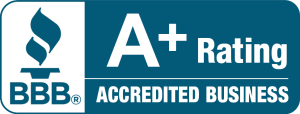In our previous blogs, we’ve covered timing and selection strategies. The last series of strategies to consider when investing in mutual funds is tax strategies.
After employing time on your side and carefully selecting the best funds for your portfolio’s strategy, you want to look at strategies to avoid taxes, as this can greatly impact your returns.
Harvesting Losses
If you’ve experienced investment losses, you may be able to derive some tax benefit from selling those investments. This is called harvesting losses.
If you have realized capital gains and have no tax losses carried forward from previous years, you can sell losing positions to offset some or all of those gains.
Any losses over and above the amount of your gains generally can be used to offset up to $3,000 of ordinary income ($1,500 for a married person filing separately) or carried forward to offset future gains.
Just remember that tax considerations shouldn’t be the sole driver of your investing decisions.
Maximizing Tax Efficiency
If you decide to sell some mutual fund shares, there may be ways to minimize the tax burden. For example, you can figure out your cost basis for the shares in whatever way is most advantageous from a tax perspective.
Rather than using the average cost per share for your fund, you might decide to request that specific shares be sold, for example, those bought at a certain price. Your strategy for choosing those shares depends on whether you want to book capital losses to offset gains or keep gains to a minimum to reduce your tax bite. (This only applies to shares held in a taxable account.)
Another way to maximize the tax efficiency of your funds is to hold them in the appropriate account.
For example, holding a municipal bond fund in a tax-advantaged account such as an IRA means that you may be forgoing higher returns for the tax-free feature of munis, even though the IRA shelters that interest from taxes anyway.
A fund that invests in Treasury Inflation-Protected Securities (TIPS) is another example. Because TIPS investors owe taxes each year on any inflation-related adjustment to the principal, holding a TIPS investment in a tax-deferred account can postpone payment of those taxes.
Before selling a fund, consider how long you’ve owned it. Assets held a year or less generate short-term capital gains and are taxed as ordinary income. That tax rate could be as high as 35 percent, not including state taxes.
Long-term capital gains on the sale of assets held for more than a year generally are taxed at lower rates: 15 percent for most investors, 0 percent to the extent investors are in the 10 percent and 15 percent tax brackets. Check the current capital gains rate to see the difference.
You can also take tax efficiency into account when purchasing a mutual fund. If you’re considering buying a fund outside of a tax-advantaged account, find out when the fund will distribute dividends or capital gains, which it must do annually.
Consider postponing action until after that date, which is often near year-end. If you buy just before the distribution is made, you’ll face potential taxes on that money, even if your shares haven’t appreciated.
If you plan to sell a fund, you may be able to minimize taxes by doing so before the distribution date.
Conclusion
There’s a lot to consider when buying mutual funds if you want to experience great returns. While all of these strategies are useful, finding the best one for you means taking into account your particular goals, timeline, and comfort level.
As experienced financial professionals, we help clients like you figure out the best investment plan for their situation, so that they can put their money to work gracefully with peace of mind.
Please connect with us and let us help you plan for your dream future. We would be delighted to go on the journey with you.










